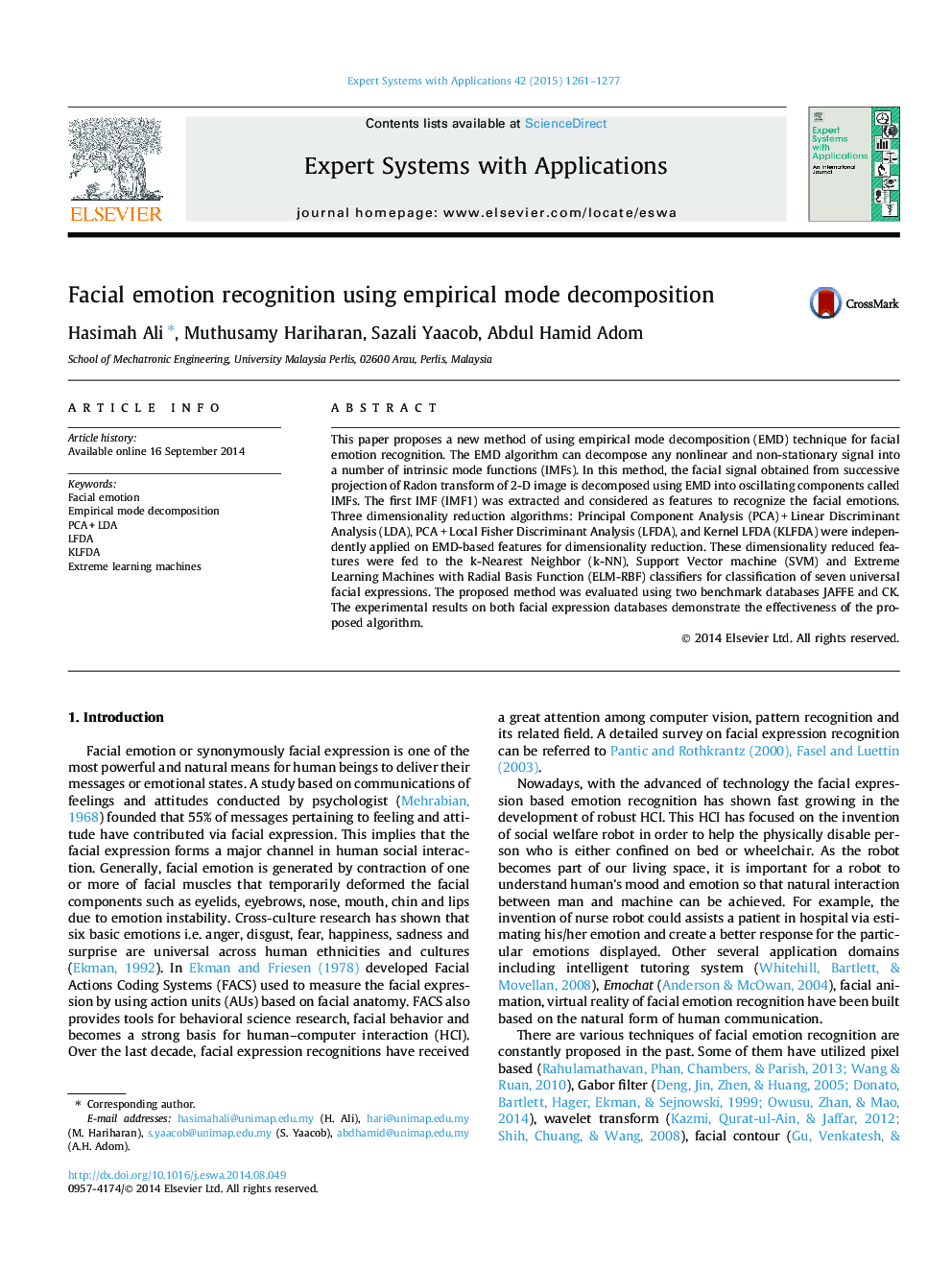| Article ID | Journal | Published Year | Pages | File Type |
|---|---|---|---|---|
| 10321904 | Expert Systems with Applications | 2015 | 17 Pages |
Abstract
This paper proposes a new method of using empirical mode decomposition (EMD) technique for facial emotion recognition. The EMD algorithm can decompose any nonlinear and non-stationary signal into a number of intrinsic mode functions (IMFs). In this method, the facial signal obtained from successive projection of Radon transform of 2-D image is decomposed using EMD into oscillating components called IMFs. The first IMF (IMF1) was extracted and considered as features to recognize the facial emotions. Three dimensionality reduction algorithms: Principal Component Analysis (PCA)Â +Â Linear Discriminant Analysis (LDA), PCAÂ +Â Local Fisher Discriminant Analysis (LFDA), and Kernel LFDA (KLFDA) were independently applied on EMD-based features for dimensionality reduction. These dimensionality reduced features were fed to the k-Nearest Neighbor (k-NN), Support Vector machine (SVM) and Extreme Learning Machines with Radial Basis Function (ELM-RBF) classifiers for classification of seven universal facial expressions. The proposed method was evaluated using two benchmark databases JAFFE and CK. The experimental results on both facial expression databases demonstrate the effectiveness of the proposed algorithm.
Related Topics
Physical Sciences and Engineering
Computer Science
Artificial Intelligence
Authors
Hasimah Ali, Muthusamy Hariharan, Sazali Yaacob, Abdul Hamid Adom,
